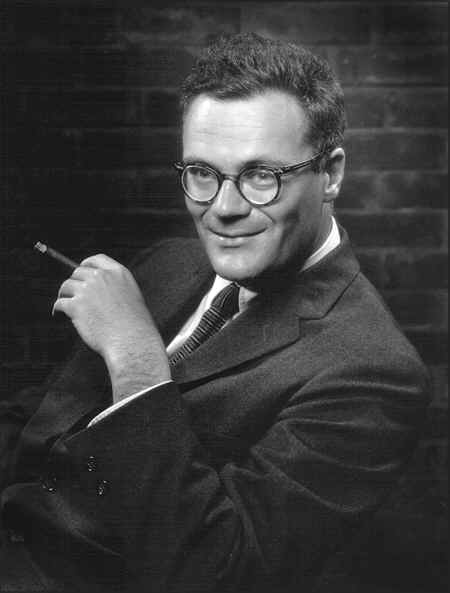Traditionalism
Traditional writers in their poems used established forms and diction, and wrote with a readily recognizable craft, often using rhyme or a set metrical pattern. Traditionalist poets were generally precise, realistic, and witty. Early works of Robert Lowell belong to this school.
Traditional poets, unlike many experimentalists who distrusted "too poetic" diction, welcomed resounding poetic lines. They also at times used a somewhat rhetorical diction of obsolete or odd words, using many adjectives and inversions, in which the natural, spoken word order of English is altered unnaturally. Occasionally, self-conscious diction combines with wit, puns, and literary allusions. For example, James Merrill, who was innovative in his urban themes, unrhymed lines, personal subjects, and light conversational tone, shares a witty habit with the traditionalists in "The Broken Heart" (1966), writing about a marriage as if it were a cocktail:
Always that same old story --
Father Time and Mother Earth,
A marriage on the rocks.
Many poets, including Adrienne Rich, Richard Wilbur, Robert Lowell, and Robert Penn Warren, began writing traditionally, using rhyme and meters, but abandoned these in the 1960s under the pressure of public events and a gradual trend toward open forms.
Robert Lowell (1917-1977)
 The most influential poet of the period, Robert Lowell, began traditionally but was influenced by experimental currents. Of course, here we will focus on his literary work in the 1960s. The most influential poet of the period, Robert Lowell, began traditionally but was influenced by experimental currents. Of course, here we will focus on his literary work in the 1960s.
On a reading tour in the mid-1950s, Lowell heard some of the new experimental poetry for the first time. Allen Ginsberg's Howl and Gary Snyder's Myths and Texts, still unpublished, were being read and chanted, sometimes to jazz accompaniment, in coffee houses in San Francisco. Lowell felt that next to these, his own accomplished poems were too stilted, rhetorical, and encased in convention; when reading them aloud, he made spontaneous revisions toward a more colloquial diction. "My own poems seemed like prehistoric monsters dragged down into a bog and death by their ponderous armor," he wrote later. "I was reciting what I no longer felt." At this point Lowell, like many other poets, changed his writing drastically, using the "quick changes of tone, atmosphere, and speed".
Lowell’s rhymes became integral to the experience within the poem instead of superimposed on it. He also gave way to new improvisational forms instead of writing in stanzas. In Life Studies (1959), he initiated confessional poetry, a new mode in which he bared his most tormenting personal problems with great honesty and intensity. These autobiographical explorations continued in For the Union Dead (1964), Notebook 1967-68 (1969), and his later books. Lowell's confessional poetry has been particularly influential. Works by John Berryman, Anne Sexton, and Sylvia Plath (the last two his students) are impossible to imagine without Lowell.
|

